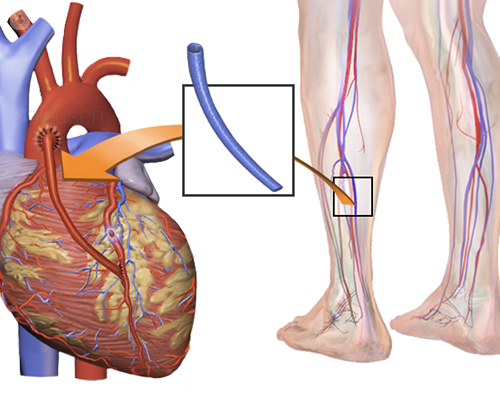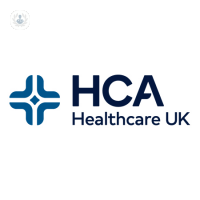Heart bypass
Mr Alberto Albanese - Cardiothoracic surgery
Created on: 11-13-2012
Updated on: 09-21-2023
Edited by: Conor Dunworth
What is bypass surgery?
Bypass surgery is a surgical technique that is used to restore blood flow to the heart. Bypass surgery involves using a blood vessel from another part of the body (usually the legs, arms or chest) and fixing it to the coronary artery above and below the blockage, which is called a graft. It is carried out under general anaesthetic.

Why is bypass surgery carried out?
Implementing a bypass is usually performed as a last resort in the treatment of coronary heart diseases if lifestyle changes, medications and an angioplasty (consisting of the opening of the arteries) have not proven successful.
With bypass surgery, a new route for the blood to reach the heart is formed and the existing blockage is avoided. Depending on the severity of the case, it may be necessary to perform more than one bypass surgery.
How is bypass surgery performed?
Bypass surgery can take between three to six hours and is performed with general anaesthetic. Most bypasses are done through the ‘on-pump’ technique in which an incision is made in the chest whilst blood is diverted through a heart-lung machine so that the bypass can be performed. Once the chest cavity is opened, the heart is temporarily stopped which is when the heart-lung machine takes over to circulate blood to the body.
Bypass surgery can also be carried out using the ‘off-pump’ technique where heart remains beating using special equipment. Some bypasses can also be done using minimally invasive surgery, through a small incision in the chest using robotics and video footage.
Preparing for bypass surgery
The days prior to surgery, the patient must take note of any changes with their body, such as the onset of a cold or flu. If there is any type of infection, it can affect recovery and the success of the surgery. Certain medications will have to be stopped as well. Before surgery, an electrocardiogram, blood and urine analysis and a chest X-ray will be performed. It is advisable to bathe an hour before surgery so as to reduce the amount of microbes on the skin. Fasting will also have to be done at a certain point before surgery.
Are there any possible dangers?
Heart bypass surgery is generally safe, but it carries some risks. Possible dangers include infection, bleeding, blood clots, stroke, heart attack, and arrhythmias.
Additionally, there can be complications related to anesthesia and potential damage to nearby structures during surgery. Post-surgery, patients may experience pain, pneumonia, or kidney problems. While these risks are relatively low, they depend on individual health and surgical factors. Patients and their healthcare providers should thoroughly assess the benefits and potential dangers of the procedure before deciding on bypass surgery.
Post-operative care after bypass surgery
Following surgery, a few days will be spent in hospital, as it is a major operation. Your vital signs will be closely monitored, and the breathing tube will remain until you are awake and able to breath unassisted. If there are no complications, release from hospital is possible within a week. Recovery takes between 6-12 weeks, and most people will return to week after four weeks.
It is also very important to make significant lifestyle changes following bypass surgery, such as:
- Quitting smoking
- Maintaining a healthy weight
- Exercising regularly
- Reducing stress factors
- Eating healthily
It is not uncommon for certain medications to be taken as well, such as drugs that help to reduce cholesterol levels.












